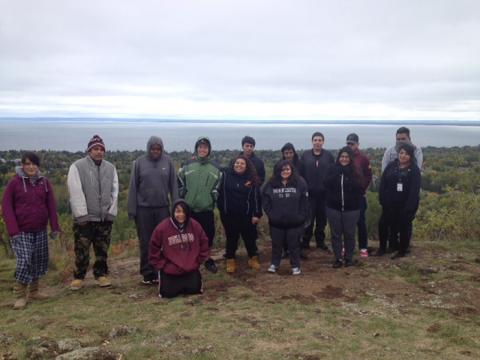Experiential Learning Program


Experiential Learning Program
The project is designed to address issues which historically have plagued Native American students. These issues include student alienation which contributes to poor academic outcomes, poor health outcomes, lack of marketable skills and disengagement from indigenous culture and traditions. The project's asset based approach allows students to re-engage and experience personal success in various aspects of life.
Focus on Education and Human Services that invest in social capital
- Youth development
- Life skills
- Workforce training
- Mentoring
- Asset building through financial education
- Nutrition and fitness through activities
- Arts and culture through native language, cultural and arts activities.
During the last 9 month period students participated in over 256 experiential session Including:
- Environmental exploration and conservation Plant Biology and Native wetland
- Indigenous Minnesota History
- University of Minnesota Raptor Center,
- Two day expedition to Hawk Ridge Rescue Center in Northern Minnesota
- Dream of Wild Health
- Boat Building
- Buffalo Hide Tanning
- Statistics and Data in sports.
- Mississippi river ecology canoe expeditions
Expedition adventure sessions including:
- Outward Bound climbing
- Urban adventures
- Orienteering
- Dog Sledding
- Black Hills Sacred Sites
- Dakota Sacred Sites and astronomy.
Results
- In past years, generally, 38 students out of 50 attended on a regular basis.
- As of September 30th 2015 the number of students regularly attending school is 48 out of 56.
- For our American Indian students, this is a qualitative improvement, especially when compared to current district-wide data.
- A record 13 students graduated in the spring of 2015.
- 9 of the current graduates have enrolled in a 2 or 4 year degree program.
- Teachers integrated experiential learning opportunities into their individual core curriculums.
- A higher degree of communication and student engagement.
n, poor academic outcomes, poor health habits and outcomes, lack of marketable skills and disengagement from indigenous culture and traditions.
